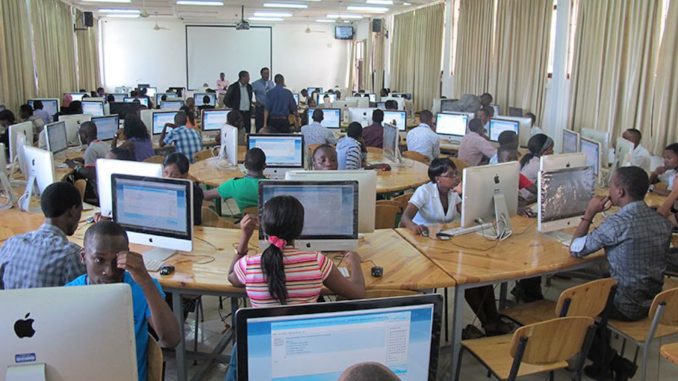
Given the reality of the knowledge economy as we see it play out in other serious countries, it is high time Nigerian universities were snatched off the ruinous alley that makes it impossible for them to lead the way in the quest for socioeconomic and political advancement in the country.
Like many other things Nigerian, higher education in Nigeria largely tells the story of acute dysfunction gnawing bitterly at the vein of the country. The increasingly frustrating steep decline in quality and standards of higher education graphically signposts the failure of visionary leadership, that combines with other equally tragic factors to make the country a canyon of punishing underdevelopment.
On the flipside, it is also true that the unmitigated disaster that defines the single biggest orbit of black people, as evident in spiking youth unemployment, a moribund healthcare system, dilapidated public infrastructure, a miserable quality of life, and the absence of structured thinking, is itself a reflection of the failure of the country’s higher institutions. To put this in another way, if successive Nigerian political rulers have failed in giving the right attention to the continual development of higher education and institutions, those institutions too have failed (and still continue to let down) the country repeatedly.
Tragically, higher institutions of learning in Nigeria have narrowed their objectives or raison d’être. Where they are yet to totally lose their universe – to apply the same context of usage of that word by Prof. Niyi Osundare, they have fully embraced mediocrity and fitfully remember their noble role as the engine room of the country’s developmental efforts. The years when universities in this country were known for being the bright lights that dispelled the darkness of ignorance, confusion, and barbarity, are far behind us. Those who know now lament the disappearance of the great times when Nigerian universities really behaved like functioning sites of knowledge production, as should the character of such institutions.
It now appears as fiction that there was a time when universities (small in number when compared to what we have today) in Nigeria were not travelling on a path that did not connect with the crying needs of the country. Those were the years when employable and innovative minds were certified fit to join the larger society and contribute profoundly to its growth and development. They were years when the Nigerian society really awaited the graduation of those young Turks with rounded education that added value to humankind. They were years when functional knowledge and strong character, not the present satanic obsession with mere certification and hedonistic tendencies, defined the products of those lighthouses of knowledge.
Is it any strange that only an inconsequential number of retiring old hands and roundly and soundly developed minds across our universities still understands how critical the university is to the continual attainment of impactful and enduring development. The point has to be made that any claim by a public university in Nigeria to excellence in scholarship, research, and an undivided and undiluted attention to the full realisation of conditions befitting a modern higher institution of learning is the equivalent of an act not different from the exercise of winking in the dark. The claim that one or two universities somewhere in the country represent what a university should really be in all possible particularities becomes hollow and inapt when attention is accorded the reality that more than a throng of university graduates are so kindergarten in their thinking capability that to employ them would be synonymous to wrecking a viable enterprise. In any case, individual redemption in the midst of collective ruination is a pyrrhic triumph.
Really, it bothers one that with more universities, private and public, licensed to operate in Nigeria, comes more ignorance – the type that was only possible in the Palaeolithic age – and a proud repudiation of knowledge as the bedrock of any development that will last and benefit people. That is, the more the higher institutions in postcolonial Nigeria, the fewer the genuine portals of ideas and creativity, and the more the woes of the land. It is sad that the existence of higher institutions of learning in Nigeria means nothing to the multi-layered problems that are not above the ken of the human mind to solve.
If we must use the sword of truth whose thrust has the power to redeem, this is the time to do something about putting an end to the gaping disconnect between our universities and the development of our country. Given the reality of the knowledge economy as we see it play out in other serious countries, it is high time Nigerian universities were snatched off the ruinous alley that makes it impossible for them to lead the way in the quest for socioeconomic and political advancement in the country. Indeed, it is time to help our higher institutions reclaim their real missions and the ethics of sound enquiry, critique, questioning, and query – all of which are vital to knowledge production.
Without any modicum of doubt, the transformation of our higher education system will catalyse the sustainable development that Nigeria sorely needs. Retrogression will remain the lot of that country whose higher education structure does not play critical roles in its quest for progress.
Ademola Adesola is a Research Fellow of the Ibadan School of Government and Public Policy.
END

Be the first to comment